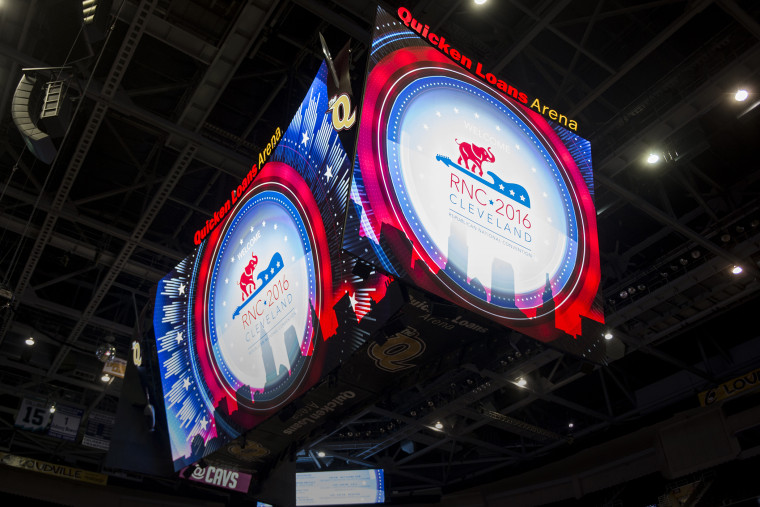We learned a couple of months ago that corporate sponsors of the Republican National Convention, which have been common for decades, is proving to be problematic in 2016. Not only are progressive groups pressing business leaders to steer clear, but corporations themselves, fearing possible violence at this year's Republican gathering, reconsidered their role.
As we discussed in March, no corporation wants to see photos of fist fights at a national convention with its logo featured prominently in the background.
Two months later, the threat of violence at the Republicans' convention has dissipated -- Donald Trump's supporters have already effectively won and will have no reason to "riot," as the candidate warned -- but the New York Times reports that the corporate money still isn't rolling in.
The large corporations that usually fund both parties' conventions have grown wary of becoming involved. They are holding back on sponsorships, leaving Cleveland about $7 million short of its $64 million fund-raising goal just 10 weeks before the festivities begin. [...] [S]ome previous corporate sponsors, like Coca-Cola and Walmart, have been reassessing their commitments. Joe Roman, the vice chairman of the Cleveland host committee, said the large national corporations that were needed to close the $7 million gap the city is facing were taking some time to line up.
In March, the gap was about $10 million, suggesting the party is still struggling to get on track.
There is, of course, still time for corporate sponsors to meet the party's $64 million target, but the Times' reporting suggests Republicans aren't accustomed to having these kinds of problems. If this is no longer about the threat of violence, then it's probably about the danger of being associated with Donald Trump himself.
Indeed, as we've noted, every time Trump speaks, there are probably some corporate public-relations executives sending an email to their bosses saying, "Maybe we ought to scale back this year."
Carla Eudy, a longtime Republican fundraising consultant, told the Times, "I have talked to several people at companies who have said, 'I've always gone to the convention, I've always participated at some level, but this year we're not putting it in our budget, we're not going, we're not going to sponsor any of the events going on.'"
While Democrats probably find this amusing, the Democratic convention is likely to feel a related pitch, not because the party is likely to nominate a nativist demagogue, but because corporate sponsors are reluctant to play favorites. When a company like Coca-Cola agrees to help sponsor one major-party convention, it nearly always writes a comparable check to the other party's convention.
The more businesses pull back from the Republican convention this year, the more likely it is to cause at least some trouble for Dems.
